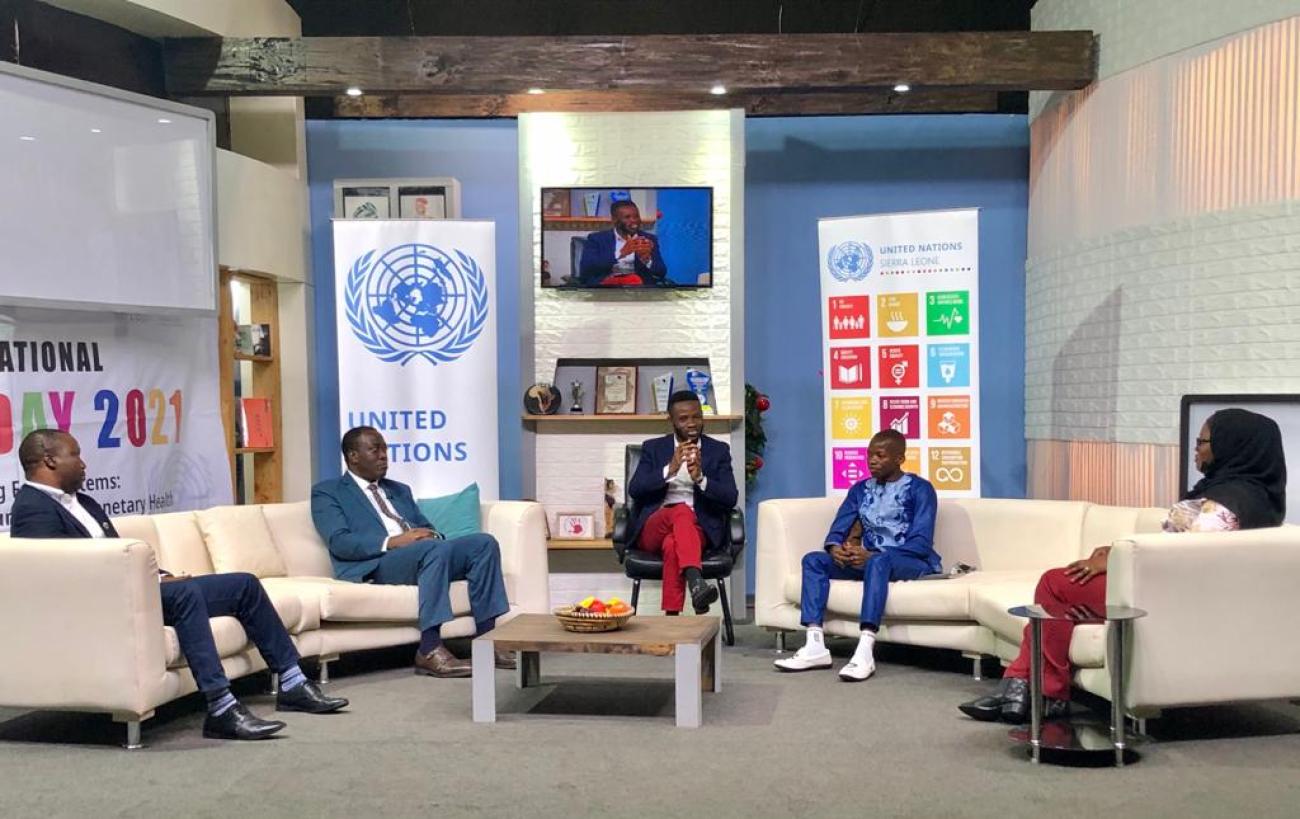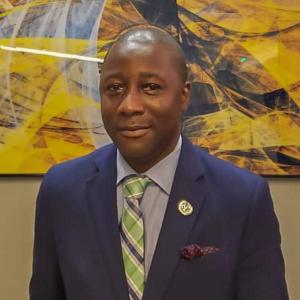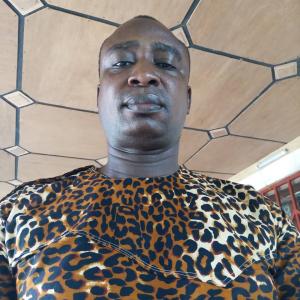With young people comprising two-thirds of the country’s population, Sierra Leone joined the rest of the world in a weeklong celebration of International Youth Day (IYD) 2021. A series of youth-led dialogues focused on the theme “Transforming Food Systems: Youth Innovation for Human and Planetary Health,” were held from Monday 9th to Thursday 12th August.
The Resident Coordinator (RC) Mr Babatunde Ahonsi and the Minister of Youth Affairs (MOYA) Mr Mohamed Orman Bangura issued a video message on Monday that previewed the week’s events, designed to highlight the ideas of young people for changing the food system in Sierra Leone, such that no one is hungry, and no one is left behind.
Minister Bangura, in officially launching the weeklong activities, said, “to the heroes of today, the heroes of tomorrow, and to the energies that will define the present and the future, I want to take this opportunity on behalf of the Government of Sierra Leone to wish every young Sierra Leonean a happy and warm International Youth Day week.”
On Tuesday, the RC, the Minister, and two youth leaders, Isha Sheriffe Wurie Jalloh and Mohamed Foday were featured on a one and half-hour television programme focused on the theme. They explored how Sierra Leonean youth could participate meaningfully in sustainable solutions to address food insecurity, including by supporting local farming businesses and by working to address gender stereotypes in agricultural roles. The Minister called on young people in Sierra Leone to think and dream big.
The RC said that global food systems, across regions and countries, are not working enough for everyone. He emphasized that hunger has increased and that the current food system needs to be transformed for it to be more inclusive, sustainable, affordable, and resilient to the impact of climate change. “A situation where we have more food being produced globally and yet an increasing number of people are hungry is unacceptable.”
UN agencies hosted a series of events during the week. UNDP and IOM hosted radio and television segments featuring Deputy Commissioner of National Youth Commission Emmerson Kamara, UNDP Youth Technical Specialist Richard Musinguzi, and IOM Communications Specialist Alfred Fornah.
Samuel Mattia, a young Hydroponic Innovator from Pujehun District, spoke about his innovative technology that automates soilless cultivation, improves crop quality, and minimizes pest and disease infestation using hydroponic techniques. This technology grows seasonal fruits and vegetables such as cucumber, onion, lettuce, grapes, and strawberries.
Mariama Bundu, a youth leader and migrant returnee based in Kambia District, shared her testimony about the challenges she encountered when she used the services of a fraudulent agent to migrate to Europe. Serving as a ‘Migrant as Messenger’ volunteer, she spoke about her awareness-raising work to dissuade young people from embarking on risky and desperate journeys.
Cornilia Hagga Kallon, a recent graduate who benefited from an IOM training program for work as a certified tractor operator, encouraged other young people, especially women, to tap into opportunities available in the agricultural sector to contribute to food security in the country.
On Wednesday, UNFPA and UNAIDS hosted panel discussions on radio and television featuring programs that support the growth and empowerment of young people. Youth representatives advocated for an inclusive approach in addressing issues affecting them, including sexual and reproductive health, gender-based violence, unemployment, and discrimination directed at persons living with disabilities. They called for mentorship and career development training to help youth take up leadership roles and contribute meaningfully to national development.
Panelists included Dorcas Koroma, a Youth and Gender Analyst at UNFPA, Mohamed K Sandi, a Consultant from UNAIDS, Salamatu Laggah and Hannah Kargbo as Youth Champions, and Mammy Saio Marah, a Girls’ empowerment advocate.
On Thursday, a group of young innovators engaged with Minister Bangura, the DSTI Director and Chief Operating Officer Ms. Michala Mackay, and UNICEF Country Representative Suleiman Braimoh to share different initiatives they are leading in their communities. The dialogue, streamed on radio and television, explored how youth-focused initiatives can help to improve youth education, employment, and civic engagement through human-centred design.
Sixteen-year-old Sarah Cassandra Kabba from Freetown shared her initial steps to get a solution to the problem of inadequate water supply. “As young people, we have been meeting with stakeholders of the community to sensitize them about the challenge of water and motivate them to allocate a piece of land near the community where a water tank can be installed and regularly supplied with clean water.” Sara is an active member of the UNICEF-supported Upshift Programme, a youth-led social innovation programme that helps young people identify challenges in their communities and create entrepreneurial solutions.
WFP and FAO hosted radio and television shows that brought together community youth contractors from Moyamba and Pujehun Districts and the Ministry of Agriculture and Forestry. They discussed youth engagement in cascading knowledge on improved agronomic practices and ensuring ownership and sustainability of irrigation systems, thereby assuring year-round and diversified agricultural production. FAO also showcased a successful poultry farmer from Kono District whose dream is to become the richest farmer in the country by 2030.
At the global level, UN Secretary-General Antonio Guterres issued a video message for IYD stating that “This year’s International Youth Day highlights solutions developed by young innovators to address challenges to our food systems. They are tackling inequities in food security, biodiversity loss, threats to our environment and much more.” Mr Guterres urged everyone “to guarantee young people a seat at the table as we build a world based on inclusive, fair, and sustainable development for all.”






